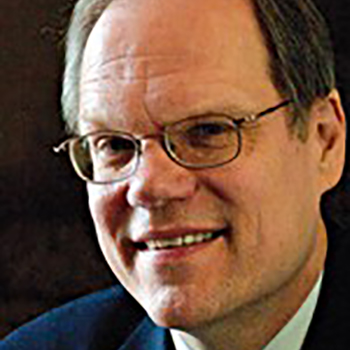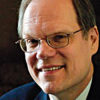Back to series
[Videos of the complete version of this talk and Q&A following the talk are available on the C.S. Lewis Institute website Here. This topic is addressed at greater length in John Koessler’s book The Radical Pursuit of Rest: Escaping the Productivity Trap (Downers Grove, IL: IVP Books, 2016).]




The Radical Pursuit of Rest
VOLUME 4 NUMBER 2 ISSUE OF BROADCAST TALKS (PDF)
BROADCAST TALKS presents ideas to cultivate Christ-like thinking and living. Each issue features a transcription of a talk presented at an event of The C. S. Lewis Institute. The following is adapted from a talk delivered on October 26, 2018 at Meadowkirk at Delta Farm in Middleburg, VA. The talk The Radical Pursuit of Rest was sponsored by the C.S. Lewis Institute and Meadowkirk at Delta Farm. All Scripture quotations are taken from the NIV.
Whether it’s in our careers, our churches, or our spiritual lives, many of us operate on the same basic assumption — that in the Christian life, busier is better. This assumption in turn is based on a supposition that equates devotion with activity. The more we love Christ, the thinking goes, the more we do. Whether individuals or churches, those who love Christ the most will do the most.
 Of course there is a trap in that thinking: if our devotion to Christ should know no bounds, neither should our activities; no matter what we are doing now, we will feel as if we need to be doing more. This means that no matter what we have done in the past, it won’t be enough. The result of this kind of thinking is a driven church filled not with worshipers but with workers, workers who must constantly strive to exceed their current level of productivity. Like a salesperson who works for a demanding employer who keeps raising the quota, or the child of a strict parent whose love must be earned but who never seems quite satisfied with the child’s effort, we are plagued by the gnawing conviction that whatever we are doing, we need to do more. Spiritual life has been reduced to work, and work has become an end in itself.
Of course there is a trap in that thinking: if our devotion to Christ should know no bounds, neither should our activities; no matter what we are doing now, we will feel as if we need to be doing more. This means that no matter what we have done in the past, it won’t be enough. The result of this kind of thinking is a driven church filled not with worshipers but with workers, workers who must constantly strive to exceed their current level of productivity. Like a salesperson who works for a demanding employer who keeps raising the quota, or the child of a strict parent whose love must be earned but who never seems quite satisfied with the child’s effort, we are plagued by the gnawing conviction that whatever we are doing, we need to do more. Spiritual life has been reduced to work, and work has become an end in itself.
In an editorial in Christianity Today titled “Whatever Happened to Grace?” editor Mark Galli observes:
What I’m hearing time and again, in every corner of the church I visit, is not the soaring message of grace but the dull message of works — that I have to believe a certain theological construct, or have a certain feeling, or perspire in effort before I can be assured of God’s radical acceptance and my future salvation.
We may not be legalists in the technical sense. We know that we are saved by grace. And yet we also feel as if it is up to us to add value to what Jesus has done.
I think this is often reflected in the church’s preaching. In fact, I can tell you it was often reflected in my own preaching. Week after week, the pastor urges the congregation toward greater exertion. We are told that we must round the bases from mere attendance to full involvement in the life of the church. We’re told that we are Christ’s hands and feet. We’re told that attending church is good; it’s okay, but, you know, really it’s not enough. We’re told that fully devoted followers of Jesus join a small group. They engage in service projects. They serve in the nursery. They come out on weekends to rake leaves for the elderly. They spend their vacation doing short-term ministry. Of course on top of this, responsible Christians are engaged with their community. They run for office or become political activists. They join the school board. They support the arts. Of course, it goes without saying that in all of this, real Christians keep the family as a top priority. And these Christians, if they’re really mature, they are spiritually reflective. The time they spend in God’s Word should be measured in hours rather than minutes. They have read everything that C.S. Lewis has written and everything that has been written about C.S. Lewis.
And then there is our ordinary work… our jobs. Well, to tell you the truth, the church doesn’t have much to say about our jobs. It may have something to say about what we do with our salary. But for some reason our ordinary work is kind of dead space to the church. It doesn’t fall into any category that the church usually thinks about when it thinks about ministry. As a result, we are put in a very difficult situation. We’re busy, maybe busier than we have ever been, yet we feel as if we are lazy. We are worn out, yet for some reason we feel like spiritual deadbeats.
In a climate like this, Jesus’s invitation in Matthew 11:28–30 must seem strangely out of sync with our Christian experience:
Come to me, all you who are weary and burdened, and I will give you rest. Take my yoke upon you and learn from me, for I am gentle and humble in heart, and you will find rest for your souls. For my yoke is easy and my burden is light.
In a church culture that believes busier is better, Jesus’s invitation is a surprise. It may even alarm us. It might disturb us, because it seems to say that busier is not better. Busier is not better because a busy faith is often a burdened faith. Jesus’s call is not a call to busyness but to be unburdened. Notice those to whom Jesus addresses this invitation. He says, “Come to me, all you who are weary and burdened.” This is a call to all who are weary, all who are burdened. But who are these people? What is the burden that they are carrying?
 Some scholars think that this is a call to those who were burdened by legalism, weighed down with the rules and laws of their religious leaders. They think that Jesus is taking issue with Jewish legalism. This would have been the teaching of those who tried to protect the commands of the law of Moses by building a fence of additional commandments around it. Jesus describes them in Luke 11:46, when He says, “You experts in the law, woe to you, because you load people down with burdens they can hardly carry, and you yourselves will not lift one finger to help them.” If this is the case, Jesus was taking aim at the exhaustion that comes from taking on burdens that God never intended us to carry. It is the weariness of trying to live not by God’s standard but by someone else’s. It could be a pastor’s; it could be a parent’s; it might even be my own standard. This is the burden of a spiritual life that is more about what we are doing than it is about why or who we are doing it for.
Some scholars think that this is a call to those who were burdened by legalism, weighed down with the rules and laws of their religious leaders. They think that Jesus is taking issue with Jewish legalism. This would have been the teaching of those who tried to protect the commands of the law of Moses by building a fence of additional commandments around it. Jesus describes them in Luke 11:46, when He says, “You experts in the law, woe to you, because you load people down with burdens they can hardly carry, and you yourselves will not lift one finger to help them.” If this is the case, Jesus was taking aim at the exhaustion that comes from taking on burdens that God never intended us to carry. It is the weariness of trying to live not by God’s standard but by someone else’s. It could be a pastor’s; it could be a parent’s; it might even be my own standard. This is the burden of a spiritual life that is more about what we are doing than it is about why or who we are doing it for.
Others say that the burden Jesus speaks of in Matthew 11 is more basic than that; it is simply the weight of sin. Sin does more than produce a burden. Sin is itself a burden, a burden that leaves us like Christian in John Bunyan’s The Pilgrim’s Progress, clothed in rags, with our face turned away from those who love us most and bearing the weight of our own iniquity.
But when you think about it, sin and legalism are really just two sides of the same coin. Legalism is our inadequate coping strategy for dealing with the problem of sin. Legalism is a human attempt to rid ourselves of the burden that only Christ can remove.
That is the great irony of legalism. Those who try to find peace with God by trying to keep the rules end up no better than those who decide to live without the rules. Fortunately for us, Jesus issues this invitation to rule keepers and rule breakers alike. He offers His rest to all who are weary and heavy laden.
And Jesus knows something about weariness. Jesus was a laborer. He was a carpenter and the son of a carpenter. Jesus knew the weight of a load. He shared the experience of everyone who plies a trade. Like us, Jesus knew what it was like to feel weary at the end of a workday. He was also a wanderer who knew the rigors of travel. It was Jesus who sat down by Jacob’s well, “tired as he was from the journey” according to John 4:6. But the weariness that Jesus speaks of in this invitation does not come from ordinary exertion. Common labor tires the body, but the weariness that John mentions here is one that afflicts the soul. The surprising, frankly astonishing metaphor that Jesus uses to help us understand this is the yoke. It is a reminder that in the Christian life busy is not necessarily better.
Busier is not better, because a busy faith is often a misdirected faith. Busier is not better, because when we make busyness our main goal we tend to be busy about the wrong things.
Jesus’s invitation to rest in Matthew 11:28–30 is a call to be unburdened by taking up a different burden. One reason Jesus’s invitation to rest seems counterintuitive is because it is a call to lay down your burden and take up His burden, something that He’s going to give you. “Take my yoke upon you and learn from me,” Jesus says in verse 29. Jesus’s listeners would have been well familiar with the yoke as an implement of agriculture. The yoke was a piece of wood shaped to fit over the neck of an animal who has been drafted to pull a heavy load. Jesus himself might even have fashioned many yokes during the years he spent as a carpenter. Jesus’s listeners certainly would have been familiar with the yoke as a biblical metaphor. Amazingly, in Scripture, the yoke is often a common symbol of submission and oppression. In fact, in most cases, when the yoke is employed as a metaphor in Scripture the sense is negative. Even if we just think about it as a mere farm implement, the yoke was a burden. Its function was to enable the animal who wore it to bear someone else’s load. So a yoke seems a most unlikely metaphor to use in conjunction with a promise of rest.
 Why would Jesus think that this image would hold any appeal to us? The answer of course is that we are already under a yoke. In fact, we are subject to many yokes. Some are yokes that we have crafted for ourselves. Unlike the brute beast who has to be forced by the farmer to take on the yoke, we make our own yokes, and we take them up willingly. There are so many yokes that it really would be impossible for me to highlight them all. Some are so common to us that we don’t even think of them as yokes. They are so familiar that we wear them like accessories. Others are more like prisoners’ chains. We don’t like them, but we don’t know how to break free from them. Either way, Jesus makes it clear that the yoke is not something that we can rid ourselves of. This is something that Jesus has to do for us. And what Jesus offers to do is to replace it. But instead of trading one load for another, Jesus invites us to trade our burden for a relationship.
Why would Jesus think that this image would hold any appeal to us? The answer of course is that we are already under a yoke. In fact, we are subject to many yokes. Some are yokes that we have crafted for ourselves. Unlike the brute beast who has to be forced by the farmer to take on the yoke, we make our own yokes, and we take them up willingly. There are so many yokes that it really would be impossible for me to highlight them all. Some are so common to us that we don’t even think of them as yokes. They are so familiar that we wear them like accessories. Others are more like prisoners’ chains. We don’t like them, but we don’t know how to break free from them. Either way, Jesus makes it clear that the yoke is not something that we can rid ourselves of. This is something that Jesus has to do for us. And what Jesus offers to do is to replace it. But instead of trading one load for another, Jesus invites us to trade our burden for a relationship.
“Take my yoke upon you and learn from me,” Jesus says in verses 29–30, “for I am gentle and humble in heart, and you will find rest for your souls. For my yoke is easy and my burden is light” (emphasis added).
You might think that the benefit Jesus promises here would be mutually exclusive from the means He prescribes. A yoke hardly seems like a tool for building relationship. In the natural world, the yoke is an instrument of exploitation. The yoke is the means the farmer uses to gain full advantage of the animal’s strength. For the animal, a yoke is an imposition, not a choice. You and I are not animals. We don’t want to be anybody’s beast of burden — not even God’s. Notice that Jesus does not deal with us like brute beasts. He does not impose His yoke upon us. He invites us to accept it. He addresses us as volitional beings. “Come to me,” He says. “Take my yoke,” He says. At the same time, the metaphor of the yoke makes it clear that we cannot fix ourselves. This is not a recipe for spiritual self-healing. This remedy cannot be self-administered. We come to Christ — to receive. The call to take up the yoke is a call to be acted upon more than it is a call to act. In fact, the order here is critical, because in this metaphor there is also a clear implication that when we take on the yoke we also take on a new vocation. The yoke, after all, is made for work. But notice that in Jesus’s order it is rest that comes first.
Our problem is that we have reversed the order. We have come to think that rest issues from work. Many of us rely on our work to give us peace of mind. We look to our work to define who we are. We look to it to order our world and to satisfy our desires. But unfortunately it has the opposite effect. Our problem is more than one of time management. Our struggle to find rest is really a consequence of misaligned confidence. We feel overwhelmed because we have placed our trust in the wrong thing. We depend on our ability to provide what we need for ourselves. Or we rely on the things we produce. In its ordinary and healthy form, work serves as a means to an end. But in its narcotic form, work no longer serves those who are employed by it. What begins as a means to a legitimate end turns into a distraction and eventually becomes an end in itself. The nature of the task may not have changed at all. The work we do may itself be virtuous and even necessary. It’s our relationship to work that has become destructive. This distortion of work sometimes manifests itself in the addictive behavior known as workaholism. But it can also reflect an entire approach to life itself. The resulting inversion creates a world where work exists for work’s own sake, and where we exist only to work.
This is the perspective that theologian Josef Pieper calls “the world of total work.” In the world of total work, work is more than a distraction. It is even more than an addiction. In the world of total work, work ultimately becomes a kind of religion. It is a world where a person’s worth is measured by that person’s usefulness. It is a world where nobody has intrinsic value. Instead, a person’s worth is determined by what that person produces. Quite frankly, this is a mentality that has reached far beyond the workplace. It is one that also afflicts the church and is a primary cause of the burden and the weariness that Jesus speaks of in His invitation in Matthew 11. In the church’s inverted world of total work, it is not enough for worshipers to contemplate the beauty of Christ. Those who gather for worship must justify their presence by doing something useful. Believers who come to church intent only on worship are treated like spiritual slackers. Meanwhile, congregational worship itself is now being described from the pulpit in terms that suggest that it is the lowest and least valued form of spiritual devotion. The implication is that those who come to church “just to worship” are being selfish. It is certainly possible to be self-centered and self-absorbed when we come to church. But is service really the remedy?
In 1 Corinthians 14:26, Paul tells the Corinthian church, “What then shall we say, brothers and sisters? When you come together, each of you has a hymn, or a word of instruction, a revelation, a tongue or an interpretation. Everything must be done so that the church may be built up.”
 You may say, well, there you go; you just contradicted yourself. Listen to Paul. Get busy, he says. Actually, that’s not what he says. In the context of this statement, it is a criticism as much as it is an observation. Paul had no problem with the church’s participatory style, but he did find fault with the self-centered manner in which it was being executed. It is the same spirit that distorted their practice of the Lord’s Supper. Apparently ministry in the Corinthian church was so mixed with egoism that their service did more harm than good. Service — even service in the church — is not a remedy for self-centeredness. The real remedy, believe it or not, is worship. The real remedy is to encounter God. The only remedy is to enter into a relationship with God and let Him draw us out of ourselves.
You may say, well, there you go; you just contradicted yourself. Listen to Paul. Get busy, he says. Actually, that’s not what he says. In the context of this statement, it is a criticism as much as it is an observation. Paul had no problem with the church’s participatory style, but he did find fault with the self-centered manner in which it was being executed. It is the same spirit that distorted their practice of the Lord’s Supper. Apparently ministry in the Corinthian church was so mixed with egoism that their service did more harm than good. Service — even service in the church — is not a remedy for self-centeredness. The real remedy, believe it or not, is worship. The real remedy is to encounter God. The only remedy is to enter into a relationship with God and let Him draw us out of ourselves.
Busy may certainly be the environment in which we have to live and work at times. It is often a consequence of the responsibilities that come with our callings and our roles. But busyness is not the essence of the Christian life. Despite what we are often told by well-meaning leaders who want to tap into the church’s human capital, busier is not better in the Christian life.
Busier is not better when busyness bases our relationship with God on performance.
And that’s the rub. Whenever busyness bases our relationship with God on performance, busier is not better. Busier is dysfunctional. Busier may even be counter to the gospel. When Jesus in Matthew 11:28–30 calls us to take up the yoke of rest, He is not calling us into a different kind of labor. There is work, to be sure. The image of the yoke implies this. We serve Christ. But at its heart, this is a call to relationship more than it is a call to task.
“Come to me…” Jesus says. “Learn from me…” Jesus says. “I am gentle and humble…” Jesus says. “You will find rest for your souls…”
For those whose thinking has been shaped by the world of work, Jesus here must seem to have it backward. Notice that when Jesus calls us into His service, He doesn’t ask for our résumé. He provides us with His. Instead of inquiring about our qualifications, He lists His qualifications. Instead of asking us to demonstrate the added value we intend to bring to the church, Jesus tells us what He is going to do for us.
It is true that rest is a verb as well as a noun. But if rest is an act, it is a special kind of act. Spiritual rest is essentially an exercise in faith. Have you ever considered what you do when you sleep? When we sleep, we lie down and close our eyes because we believe that the world will get along fine without us. We believe that God will take care of us and the world during our slumber. In Psalm 3:5, the psalmist declares, “I lie down and sleep; I wake again, because the Lord sustains me.” Like sleep, spiritual rest begins with surrender. When we rest, we relinquish control. We relinquish control of the world and we resign ourselves to be carried along by a current that is already in motion. This is a current that has been set in motion by God Himself. In the Christian life, “rest” is synonymous with grace. This means that it must be received before it can be practiced. One of the most frequent questions I am asked about this subject is, what exactly do I need to do? It is understandable. But it is also a question that betrays a bias in our thinking. As theologian Josef Pieper observes in his book Leisure: The Basis of Culture:
The inmost significance of the exaggerated value which is set upon hard work appears to be this: man seems to mistrust everything that is effortless; he can only enjoy, with a good conscience, what he has acquired with toil and trouble; he refuses to have anything as a gift.
Years ago, when I worked in a bookstore in a shopping mall, the section toward the back was labeled “self-help.” Ironically or perhaps appropriately, the self-help section was always the messiest section in the store — a bit like our lives. I think it was because the people who went to the self-help section were usually browsing instead of buying. They would leaf through the books hoping to find a quick solution to their problems. Of course today we wouldn’t go to a bookstore at all. We would Google our question or look for a how-to video on YouTube.
We live in the age of the life hack and the quick fix. Thousands of websites, podcasts, and books promise to provide us with simple steps that will improve and even transform our lives. Sometimes they even work! Unfortunately the spiritual life tends to be impervious to life hacks. It is not easily reduced to five steps or simple tricks or quick shortcuts, because it is a relationship rather than a method. “Take my yoke,” Jesus says. “Learn from me,” Jesus says. “I am gentle and humble in heart,” Jesus says. This is the language of relationship. This is an invitation into a relationship with God Himself in the person of His Son Jesus Christ. And that in essence is what the yoke of Christ really is. It is not a job description. It is not a task. It is a relationship. To take the yoke of Christ is to submit ourselves to Christ’s vision of reality and be transformed by it. It is to acknowledge that we are sinners who cannot fix ourselves and are in need of His grace and forgiveness. But more than anything else, to accept the yoke is to rest. It is to rest from our own works and to receive the righteousness of Christ as our own righteousness. To accept the yoke is to accept Christ.


John Koessler
ProfessorJohn Koessler, is chair and professor of pastoral studies at Chicago’s Moody Bible Institute where he has been a faculty member since 1994. Prior to joining Moody, John served as pastor of Valley Chapel in Green Valley, IL for nine years. An award-winning author who has written thirteen books and numerous magazine articles, he is a frequent conference speaker and preacher.

 COPYRIGHT: This publication is published by C.S. Lewis Institute; 8001 Braddock Road, Suite 301; Springfield, VA 22151. Portions of the publication may be reproduced for noncommercial, local church or ministry use without prior permission. Electronic copies of the PDF files may be duplicated and transmitted via e-mail for personal and church use. Articles may not be modified without prior written permission of the Institute. For questions, contact the Institute: 703.914.5602 or email us.
COPYRIGHT: This publication is published by C.S. Lewis Institute; 8001 Braddock Road, Suite 301; Springfield, VA 22151. Portions of the publication may be reproduced for noncommercial, local church or ministry use without prior permission. Electronic copies of the PDF files may be duplicated and transmitted via e-mail for personal and church use. Articles may not be modified without prior written permission of the Institute. For questions, contact the Institute: 703.914.5602 or email us.
-
Recent Podcasts
The Road Back – Trevor Lancon’s Story
by Trevor Lancon, Jana Harmon on November 15, 2024Deeply involved in his church’s youth group, Trevor...Read More
-
From Politics to Pampers
by Michelle Morgan Knott, Aimee Riegert on November 15, 2024
-
An Unexpected Change – David Westerhoff’s Story
by David Westerhoff on November 8, 2024
-
Recent Publications
Will You Be Ready?
by Thomas A. Tarrants on October 23, 2024Tom Tarrants gives insights on how we can...Read More
-
Should Christians Be Involved with Politics?
by Kerry A. Knott on October 1, 2024
-
Isn ’t Atheism Based on Scientific Fact Whereas Christianity is Based on “Faith”?
by Cameron McAllister on September 1, 2024
0
All Booked
0.00
All Booked
0.00
All Booked
23169
ADVENT CALENDAR: The Amazing Prophecies Fulfilled by the Birth of Jesus Christ
https://www.cslewisinstitute.org/?event=advent-calendar-the-amazing-prophecies-fulfilled-by-the-birth-of-jesus-christ&event_date=2024-11-28®=1
https://www.paypal.com/cgi-bin/webscr
2024-11-28

Next coming event
Days
Hours
Minutes
Seconds
ADVENT CALENDAR: The Amazing Prophecies Fulfilled by the Birth of Jesus Christ
On November 28, 2024 at 6:00 amCategories
Speakers

John Koessler
Professor
Team Members

John Koessler
ProfessorJohn Koessler, is chair and professor of pastoral studies at Chicago’s Moody Bible Institute where he has been a faculty member since 1994. Prior to joining Moody, John served as pastor of Valley Chapel in Green Valley, IL for nine years. An award-winning author who has written thirteen books and numerous magazine articles, he is a frequent conference speaker and preacher.





